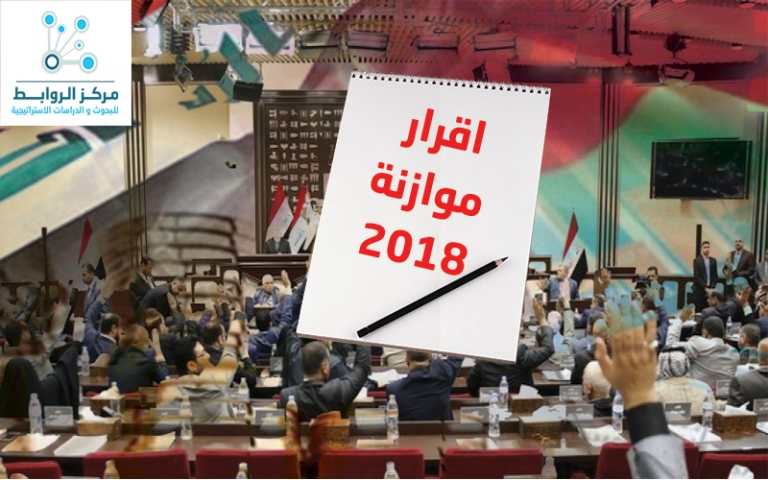The Iraqi parliament voted on the draft federal budget for the current year in its meeting held on 3 March, after the legal quorum was completed with the approval of 176 out of 328 deputies.
It was supposed to pass the Iraqi budget before the beginning of 2018, but points of disagreement between the central government on the one hand and Sunni Arabs, Arab Shiites and Kurds on the other prevented its approval on time.
The budget was approved, worth (91643667236) (ninety one trillion nine hundred and forty-three billion six hundred and sixty seven million two hundred and thirty-six thousand Iraqi dinars), equivalent to 88.5 billion dollars.
The vote on the budget saw the boycott of Kurdish parliamentarians and their protest to reduce the financial allocations for the Kurdistan region of Iraq by 4.4%, after the reduction of the government in Baghdad budget allocations of the region in the budget to 12.6% after it was about 17%.
“We boycotted the vote and there are proposals to completely boycott the political process in Iraq following the unfair treatment that we are receiving,” said Kurdish lawmaker Ashwaq al-Jaf.
And among the disagreement points between the Iraqi government and the administration of Kurdistan region of Iraq is Kirkuk province , rich of oil and areas around it noting that the central government has indicated that it reached an agreement with the Kurds to resume oil exports from the city of Kirkuk ,in which the largest oil fields of Kurdistan are located , but it did not specify the period of time .
The estimated revenues from the export of crude oil were calculated on the basis of the average price per barrel of $ 46, based on the exchange rate of (1182) dinars per dollar, the export rate of 3.9 million barrels per day, including the provinces of Kurdistan, estimated at 250 thousand barrels and the income registration for the State Treasury.
Among the Iraqi budget plan, which expected a deficit of about 10.6 billion dollars, revenues reach 77.5 billion dollars, with 20.8 billion dollars allocated for investments.
The Prime Minister, Haider Abadi, the adoption of population ratios on the share of the Kurdistan region in the budget, indicating that the increase to 17% was for political gains.
The Speaker of the House of Representatives, Salim al-Jubouri pointed out , that “the demands of the Kurds have been included in the budget and have been addressed, especially with regard to salaries of staff of the region and social welfare.”
“This is the first time that the government has committed itself to pay the salaries of the Peshmerga forces, which were paid by the government of the province and to deal with outstanding issues.”
The deputy of the coalition, Adnan al-Asadi, said that the current percentage (12.6%) given to the Kurds in the budget was given according to the census, and will not be increased permanently, explaining that the dream of the Kurdistan region is to return the previous proportion of the budget, which was 17%, but this dream will never be achieved, as he said.
In the context of the current situation, the Kurdistan region is going through the worst economic crisis since its inception, as it became overwhelmed by debts following the collapse of oil prices since 2014.
Sunni Arab deputies called for more funds to be allocated for the reconstruction of areas that the state has regained it from the control of the militants of the organization ISIS , and these areas are dominated by the Sunni majority such as Mosul, Iraq’s second-largest city, which suffered a great deal of destruction during the war on the terrorist organization.
Shatha Khalil
Economic Studies Unit
Rawabet Center for Research and Strategic Studies

